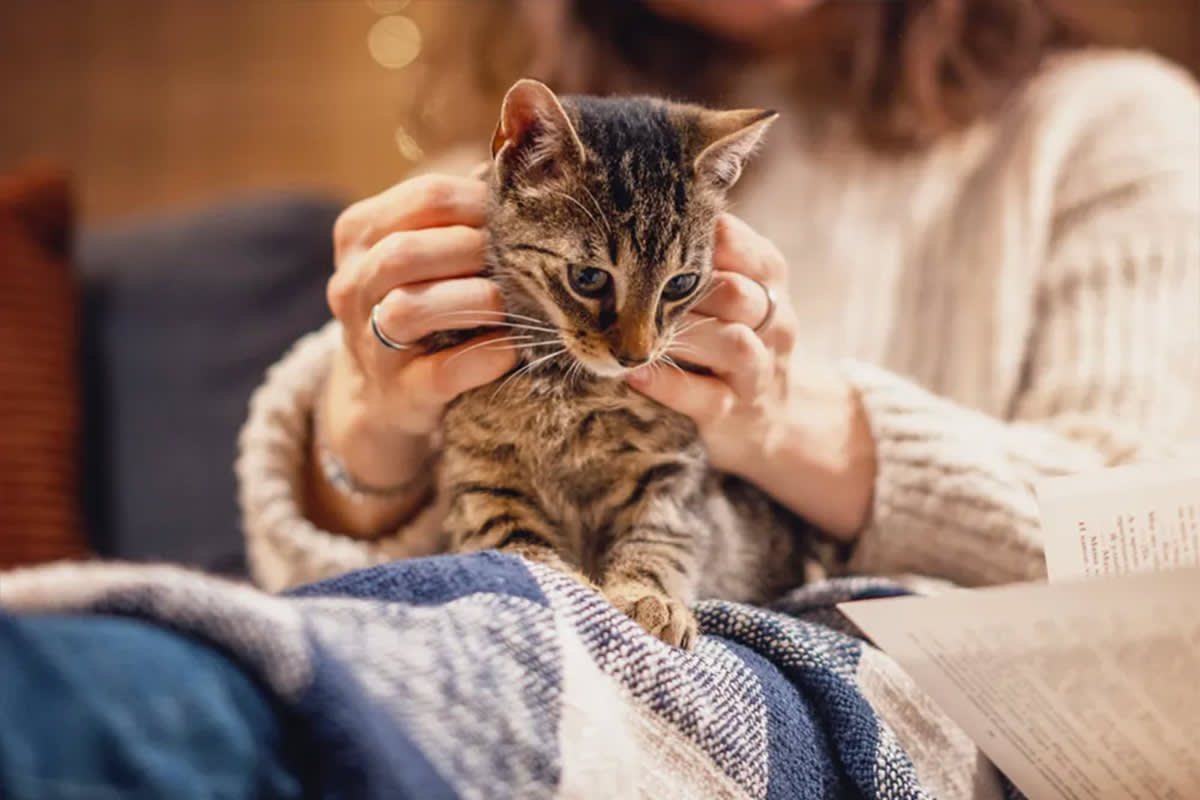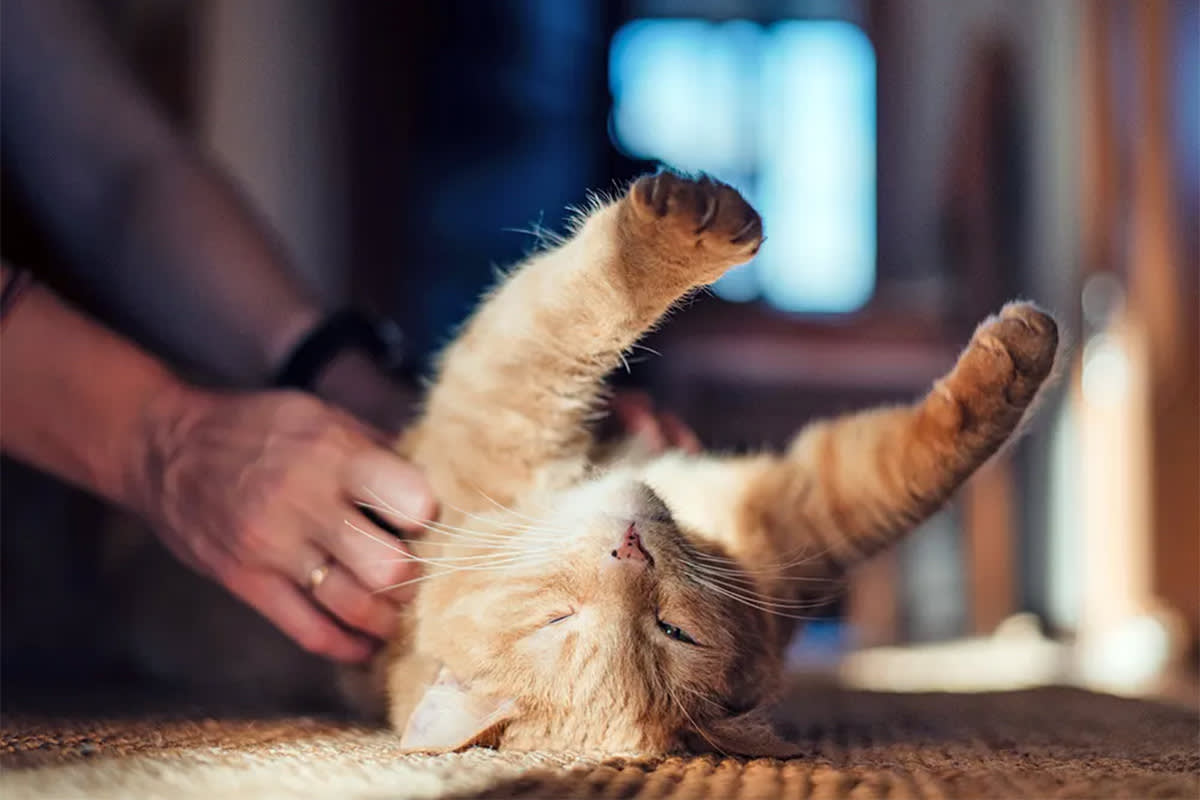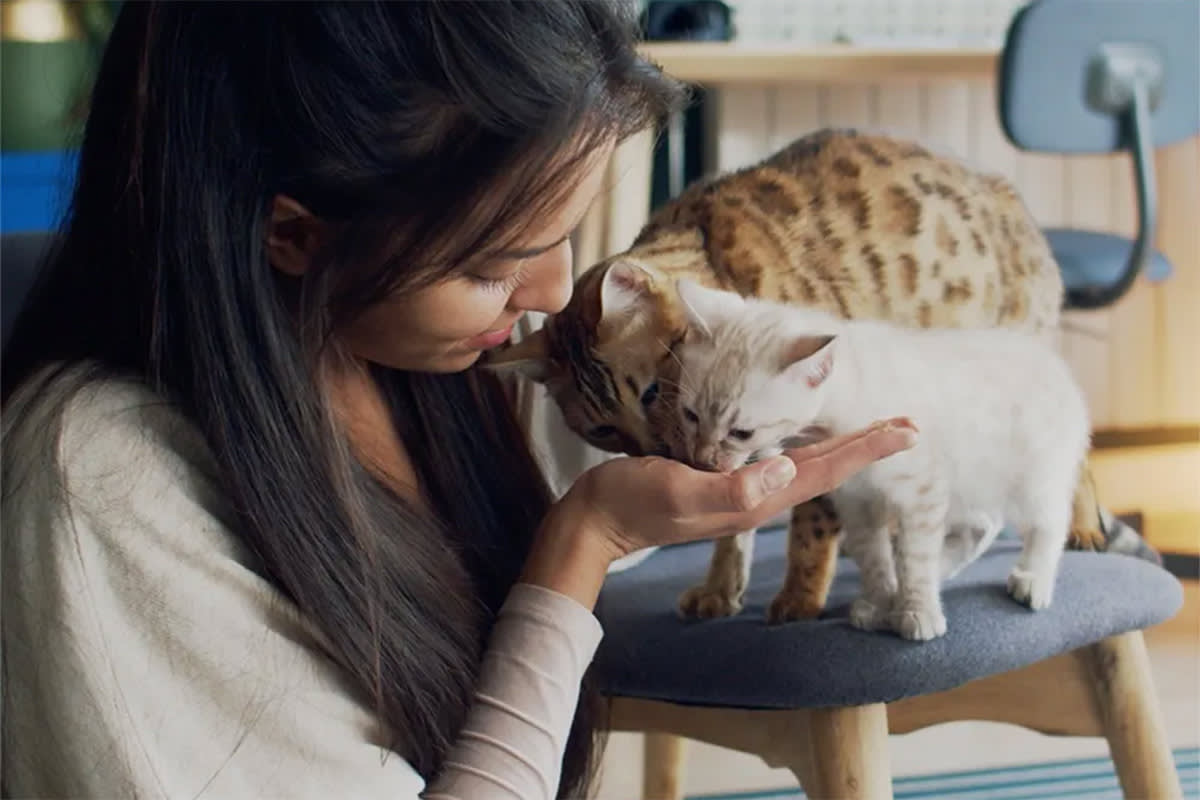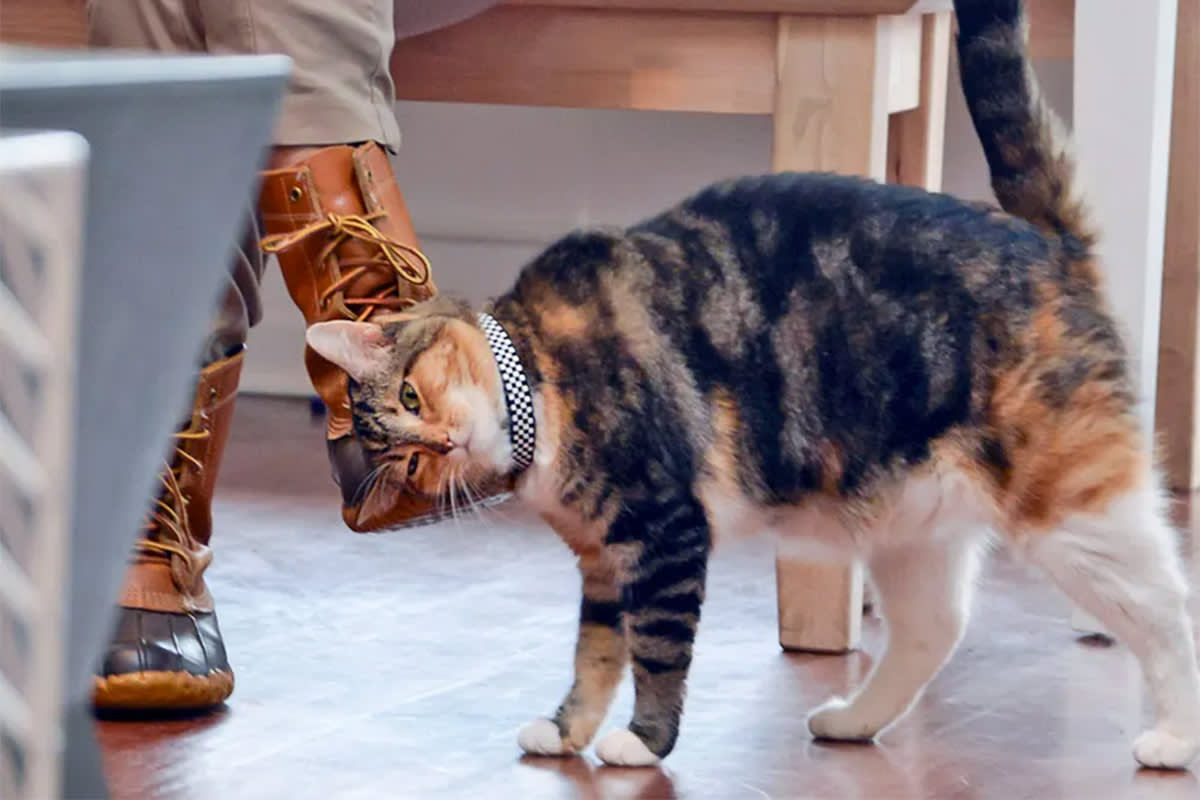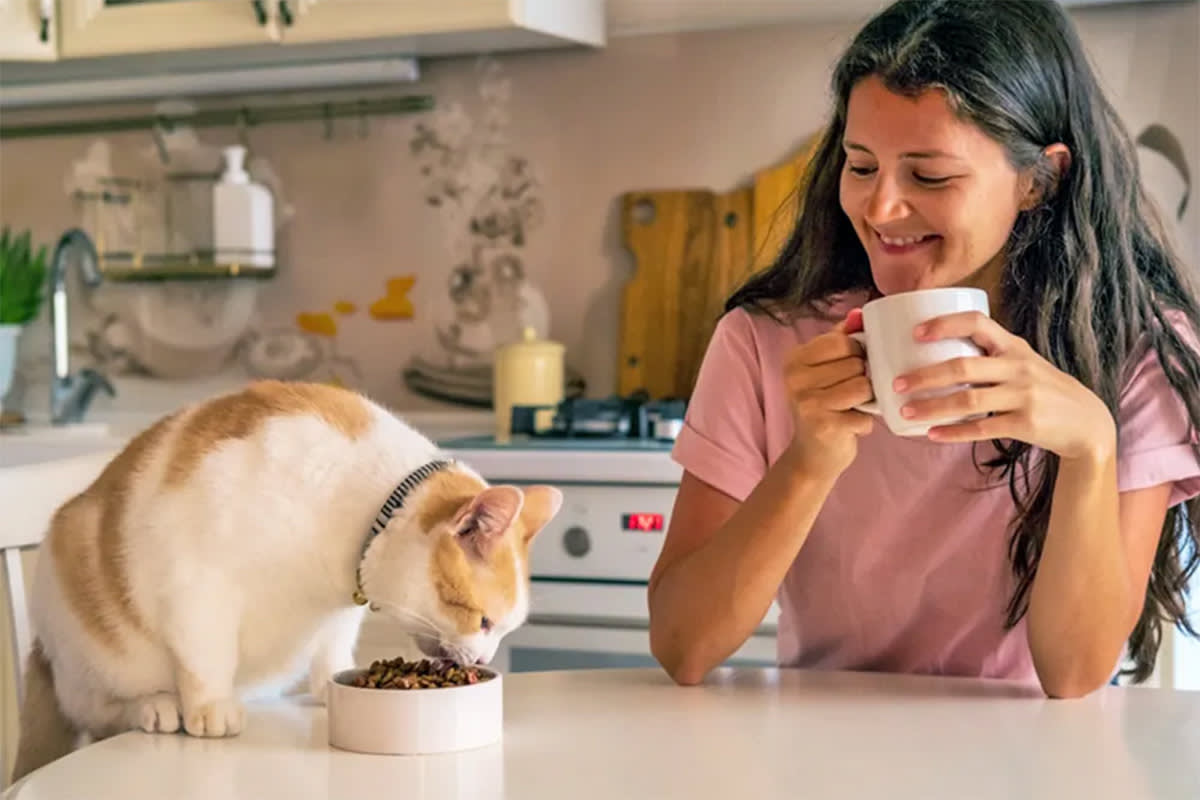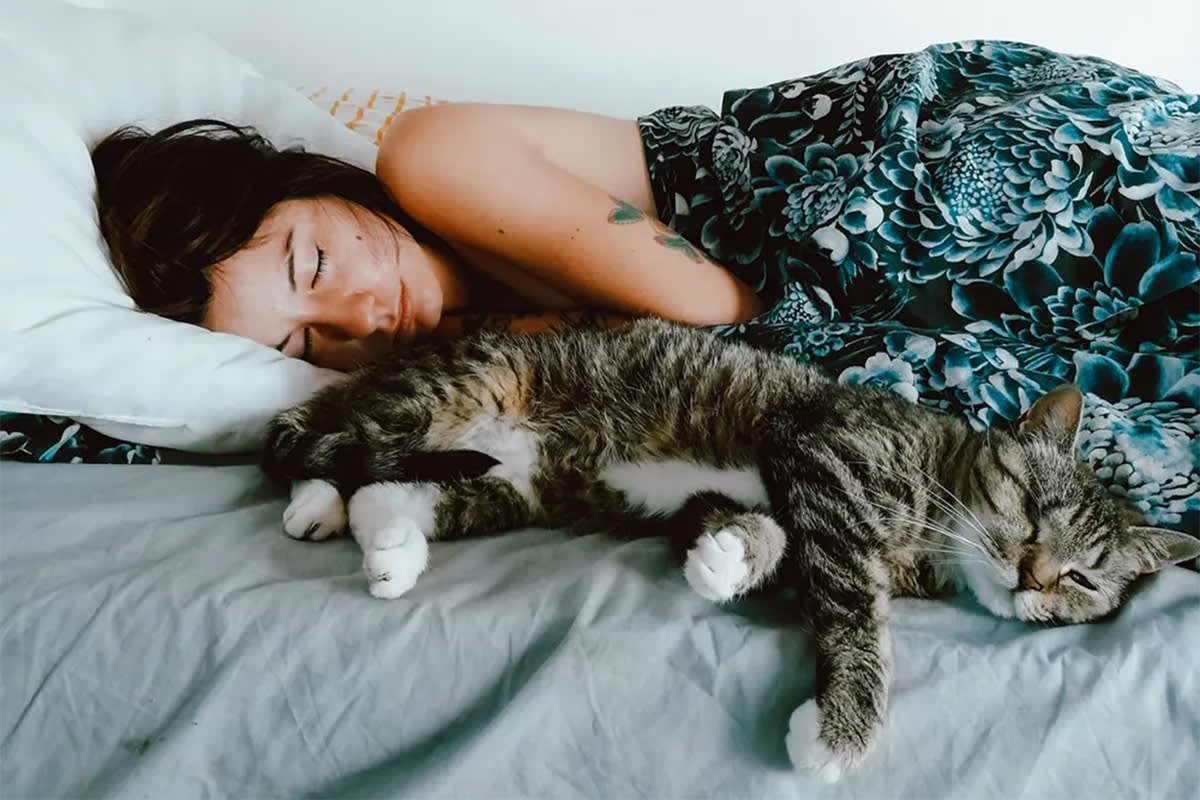10 Signs Your Cat Trusts You
And what you can do to strengthen your bond even more.
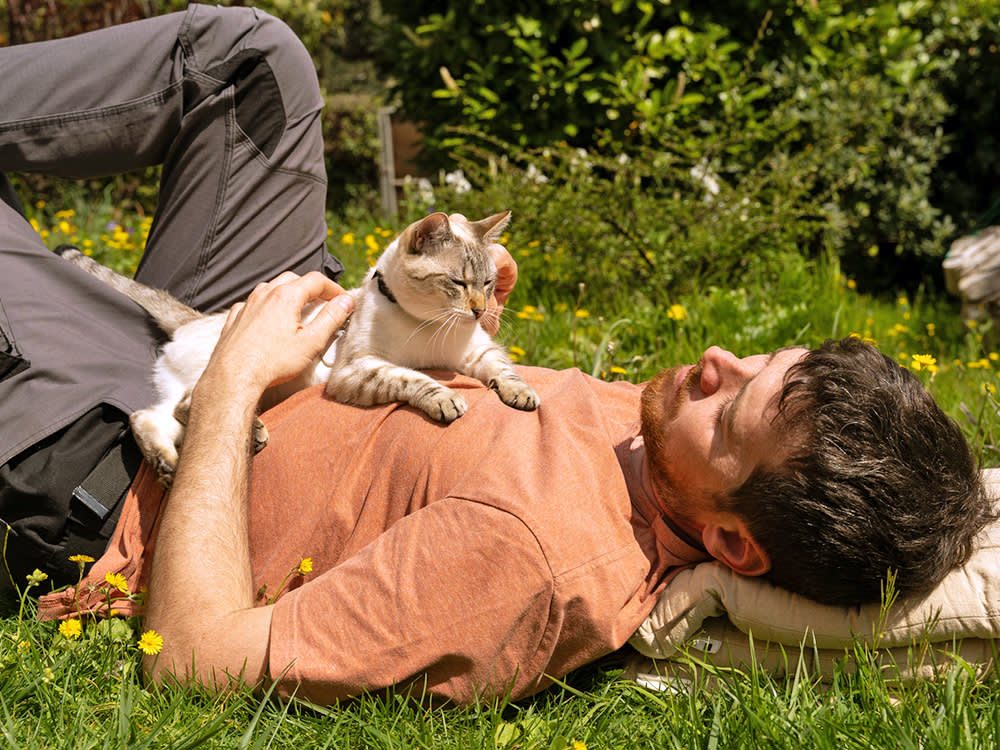
Share Article
Trust is an essential part of any healthy relationship, including the one you have with your cat. But what does trust truly mean to a cat? How do they show their trust in you? And what can you do to strengthen that trust and the bond you share?
“Trust, to cats, is all about safety,” says certified cat behavior consultant, Joey Lusvardi of Class Act Catsopens in new tab. “Are you a threat? Are you a potential predator? Are you going to hurt them?”
The human conception of trust is about safety, too. But the hurt from which we seek to protect ourselves is not just physical. It’s emotional, social, psychological, and financial. It’s not just: Can you trust this person not to physically harm you? It’s: Can you trust them not to tell your secrets? Not to embarrass you? Not to hurt your feelings? Trust can even be reflexive. Do you trust yourself?
Human conceptions of trust, in other words, are much more complex than they are for cats. And that can be a hard pill for devoted cat parents to swallow. You may want to believe that your cat is just as smart and complex as you are, but they’re not. And that’s OK. It’s important not to anthropomorphize cats, because when you do, you run the risk of neglecting their actual needs in favor of imagined ones.

Cats care about physical comfort and safety, and their trust in you is about whether or not you provide those things in the ways and quantities that they need. And while they can’t tell you whether or not you are doing a good job of this, they can and do show you through the following behaviors.
1. They ask you for things.
Often, they do this by meowing, which is interesting, because cats don’t really meow at each other. They meow at their mothers, who provide them with food, warmth, and safety when they are kittens, and they meow at their people, who provide them with the same things as adults.
Of course, not all cats meow. Some cats ask for things by tapping you with their paw or rubbing up against you. “But whatever their method of asking, they do it because the trust that you will provide for them,” says Stephen Quandt, certified cat behaviorist at Cat Behavior Helpopens in new tab.
2. They touch you and allow you to touch them.
“Any time a cat makes contact with a person, they are taking on a certain amount of risk,” Quandt says. “So, only if they really trust you will they initiate touch or allow themselves to be touched by you.”
This is not to say that a cat that won’t let you touch them doesn’t trust you. Not necessarily. Some cats are just more aloof or protective of their personal space than others. And you may be able to bring them around, but more on that later.
3. They adopt a relaxed body posture around you.
This could mean loafing or just keeping their ears forward and their muscles, fur, and whiskers relaxed. The more at ease your cat is, the more they trust that they are safe with you.
4. They show you their belly.
Contrary to popular belief, when cats show you their belly, it is not always an invitation to pet said belly. But it can be an indication that they trust you enough to expose one of their most vulnerable parts to you.
This interpretation is both context and cat dependent, though. “Exposing the belly can also be a defensive action,” Quandt says. By rolling onto their side and getting all four paws up, they could be putting themselves in a position to defend themselves with their teeth and all four sets of claws. So, be sure to observe their other behaviors. If their ears or head are back, if their pupils are dilated, or their fur is standing up, keep your hand away from their belly.
5. They let you do things others cannot.
“This is one of the biggest signs your cat trusts you,” Lusvardi says. “Maybe they let you trim their nails or hold them or, in some extreme cases, only come out of hiding when you are around.”
6. They groom you or let you groom them.
Mutual grooming is common among cats. So, when your cat grooms you or allows you to groom them, it is often an indication that they not only trust you, but see you as a member of their family.
7. They follow you around.
A cat can want to be near you, and trust that they are safe with you, without wanting to be all up in your business. “Even if they don’t want to be petted, their choice to be near you indicates a certain degree of trust,” Lusvardi says.
“It is also possible that they have learned that if they follow you around, you will give them something like a treat,” Quandt says. “In which case they trust that this action will result in a reward.”
8. They mark you.
A cat’s body is covered with scent glands — on the head, paws, ears, base of the tail. They mark you with these scent glands by headbutting you or rubbing up against you because they feel close to you.
Sometimes, they even do what is known as associative marking, putting their scent on items you take in and out of the house because they want to be closer to you. And they wouldn’t long for this closeness if they believed you were a threat to them.
9. They slow-blink at you.
If you’ve ever had a staring contest with your cat, you’ve probably noticed that they like to blink at you as if they are analyzing you. It turns out, they are just letting you know they trust you. “The slow blink is a sign of trust,” says certified feline behavior consultant Cristin Tamburo told Kinship. “Your cat is showing that they are relaxed and comfortable in your presence.”
10. They cling to you during times of distress.
Maybe they hide behind you when there are new people in the house, keeping you between them and the strangers because they trust you to protect them. Or maybe at the vet, when you hold them, they bury their face in your shoulder, trying to get as close to you as possible.
Build greater trust between you and your cat.
Of course, your cat may not exhibit all of these behaviors. The ability and extent to which a cat is able to trust depends on their personality and past conditioning. But if you want to improve your relationship with your cat and build greater trust between you, there are things you can do:
1. Be predictable.
Cats take comfort in consistency, so the more consistent you can be in your actions (and reactions) the better. This doesn’t necessarily mean doing things like feeding them at exactly the same time every day, though it couldn’t hurt. It’s more about maintaining a calm and predictable environment.
2. Avoid things that create fear or stress to manage behavior.
“Yelling at your cat, using a spray bottl e, or otherwise doing anything to startle them will only diminish their trust as it indicates to them that you are not predictable,” Lusvardi says. “Instead, focus on meeting the needs of the cat in another way.” Remember that cats don’t do things to upset you. They simply react to their circumstances. If you don’t like those reactions, it’s up to you to figure out why they are occurring and address the underlying issues calmly and compassionately.
3. Respect their boundaries.
“If your cat says no to something like being touched, respect that,” Lusvardi says. And let them tell you when they are done with play or grooming. “If cats know they can walk away from something they don’t like, they’ll be much more likely to participate.”
4. Play gently.
If your cat ever looks freaked out or defensive during play, pull back. Back off even if your cat hasn’t yet got to the point where they are running away or using their teeth or claws to defend themselves. The more gentle you are, the more trusting they will become.
5. Take the time to make them comfortable.
Before forcing your cat to do something they don’t want to, like getting in their carrier, or having their nails trimmed, or taking medication, help them relax. Offer them treats or give them a stroke. Silence the room, and take your time. You’ll get to whatever it is when you get to it.
“Cats are often much more cooperative if you take the time to help put them at ease,” Lusvardi says. And a cat at ease is a cat who trusts.

Charles Manning
Charles Manning is an actor and writer based in New York City. In his free time he likes to cook, go swimming at the public pool, volunteer at the LGBTQ senior center, and foster senior and special-needs cats. His work has previously appeared in Cosmopolitan, Elle, Marie Claire, Harper’s Bazaar, Seventeen, and Nylon.

